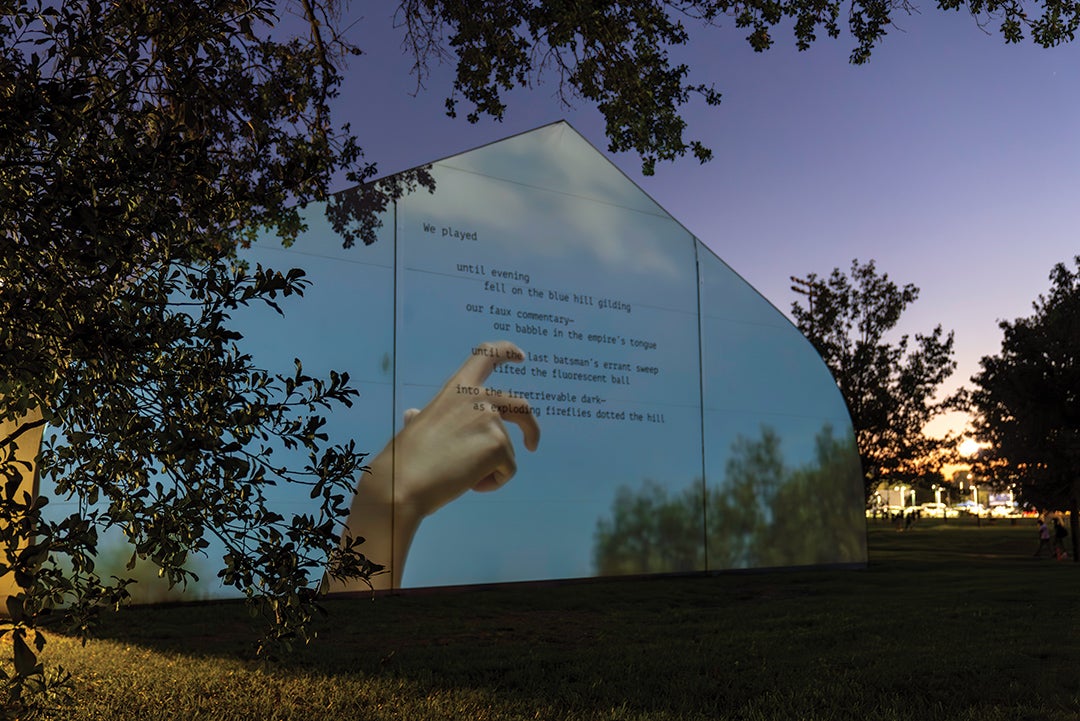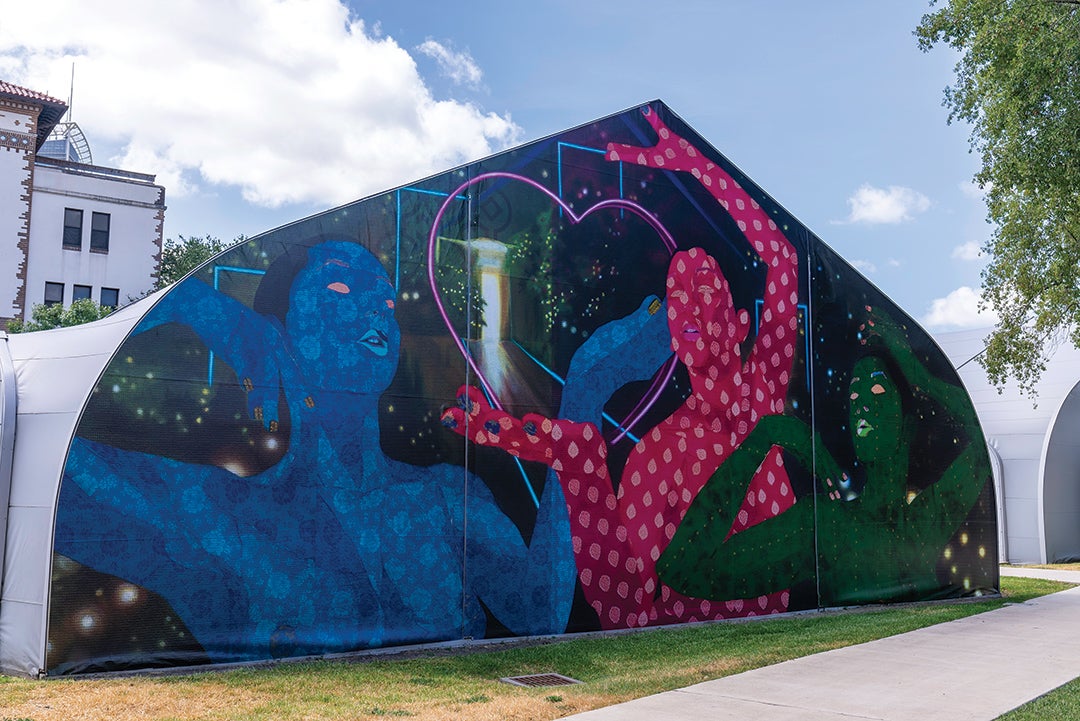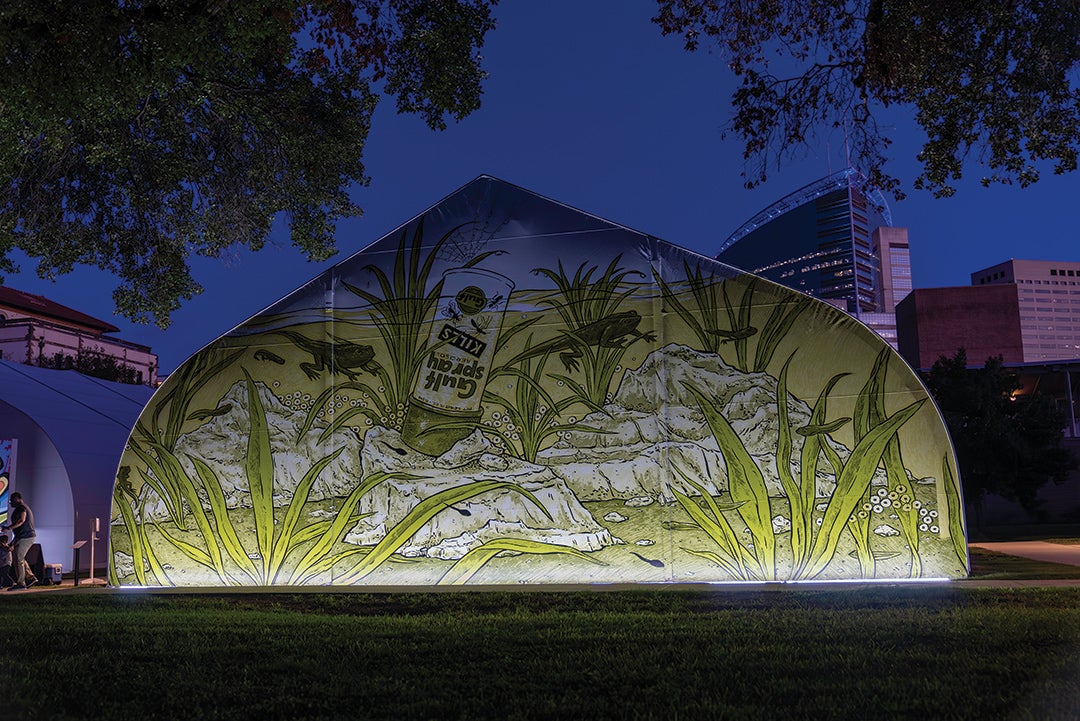Campus as Canvas
The Moody Center’s newest “Tent Series” speaks of diasporic culture, self-love and environmentalism.

Winter 2024 | By Andrew Bell | Photos by Gustavo Raskosky
In the south side of campus stands a 37-word poem adorning one of the walls of the large tent-like structures along Loop Road. The arrangement of stanzas, citing a “batsman’s errant sweep” of a “fluorescent ball” into the night, may seem out of place at first glance, especially sitting alongside two colorful art installations that pop in the daytime.
But once the sunlight dims, this work of art comes to life.
Featuring a choreographed performance by Indian dancer Jeevika Bhat, the tent’s exterior lights up with a video portraying the intricate motions of a cricket player, throwing and swinging for the proverbial fences behind the text of the poem.

Kenneth Tam, assistant professor of art at Rice and the creator of the installation, “We Played,” says he had no prior relationship with the sport of cricket before being commissioned by the Moody Center for the Arts to create an artwork for this unique public space.
So, why cricket? Tam says he wanted to explore the culture of sports at Rice and how it correlates to campus life. But when he learned about the rise of self-organized cricket leagues in Fort Bend and Harris counties’ South Asian communities, he made an additional connection between sports, culture and community.
“The prevalence of cricket in Texas was something that I was surprised to hear,” Tam says. “I thought it was an interesting opportunity to think about the relationship between sports and community and diasporic memory.
“For someone who stumbles upon the tent casually, without knowing the context of the project, which I imagine is most people, I just want them to be curious and spend some time looking at the performer and thinking about what those movements are,” he says.
Tam’s artwork is one of three installations by Houston-based artists taking part in the fourth round of the Moody Center’s ongoing “Tent Series.” These “tents” — formally known as Provisional Campus Facilities — are large flexible spaces designed for classes, events and meetings and were first installed during the COVID-19 pandemic.

Multimedia artist Preetika Rajgariah’s installation, “Your Potential Self Is Infinite,” continues her exploration of identity, race, pop culture and sexuality. Using yoga mats, family-owned saris and lights, she created a collage of self-portraits based on a traditional Indian dance. “It’s a message of self-love to all the women on campus, especially those who look like me,” Rajgariah says.
In “Skeeter Control,” artist and illustrator Sarah Welch invites viewers to consider the effects of deadly insecticides on natural habitats along the Gulf Coast and beyond. “I like the contrast between a frog pond, which you could say is its own form of mosquito control, and the chemical bug spray as a human-engineered tool of control,” she says.
Learn more at moody.rice.edu/tents.
